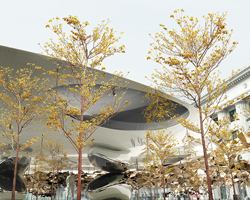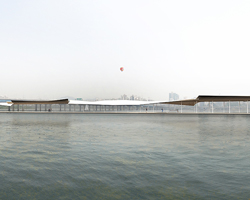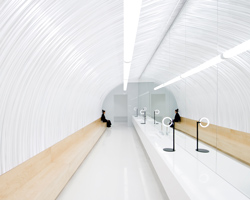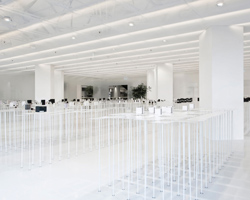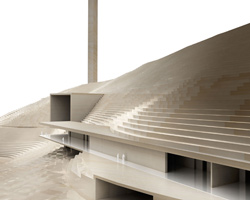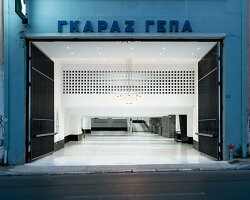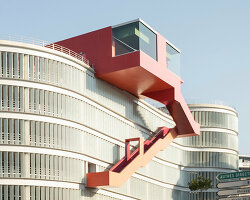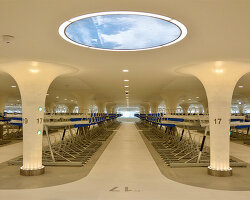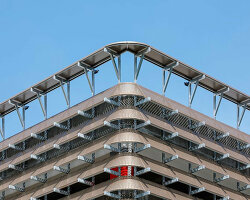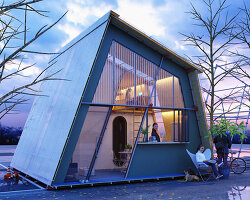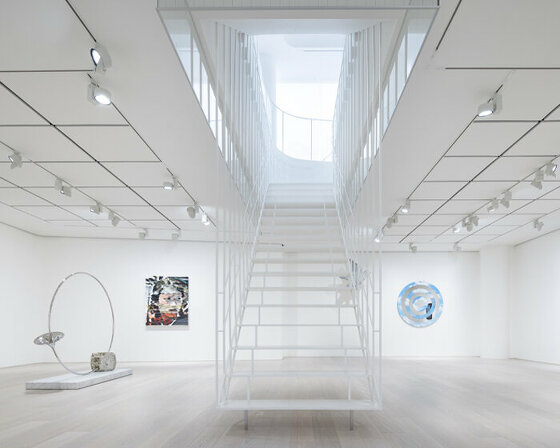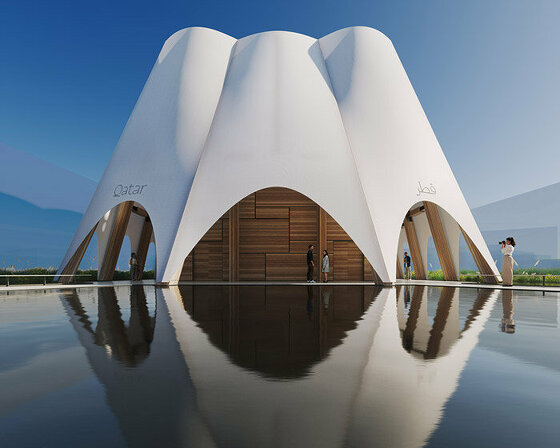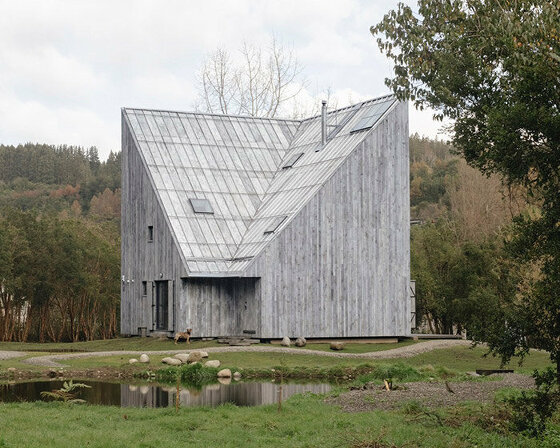KEEP UP WITH OUR DAILY AND WEEKLY NEWSLETTERS
PRODUCT LIBRARY
martin gomez arquitectos brings japanese design influences to coastal uruguay with this boji beach house.
the minimalist gallery space gently curves at all corners and expands over three floors.
kengo kuma's qatar pavilion draws inspiration from qatari dhow boat construction and japan's heritage of wood joinery.
connections: +730
the home is designed as a single, monolithic volume folded into two halves, its distinct facades framing scenic lake views.
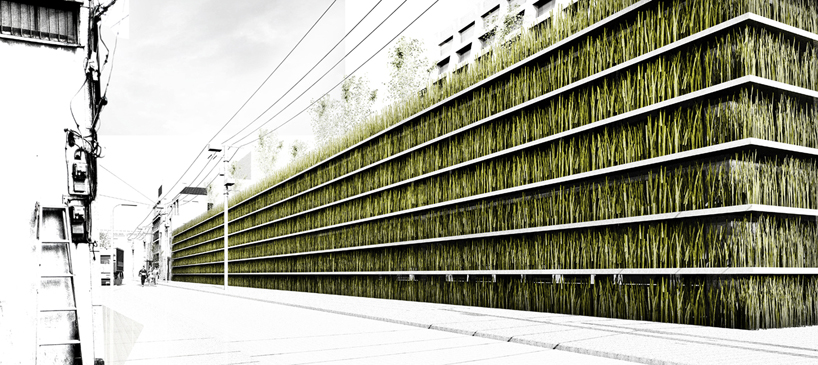
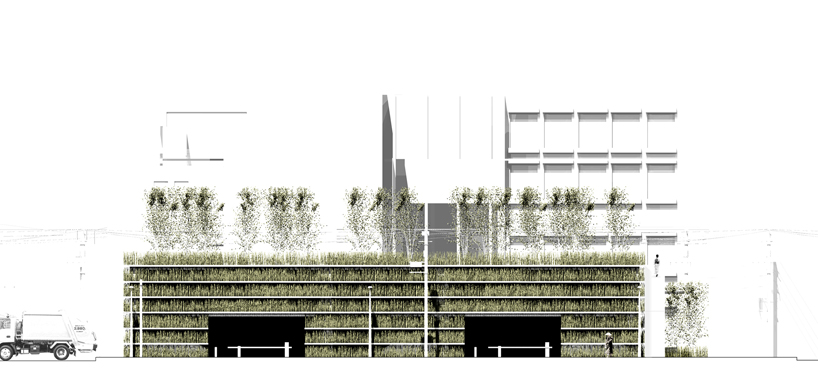 rendering of the exterior
rendering of the exterior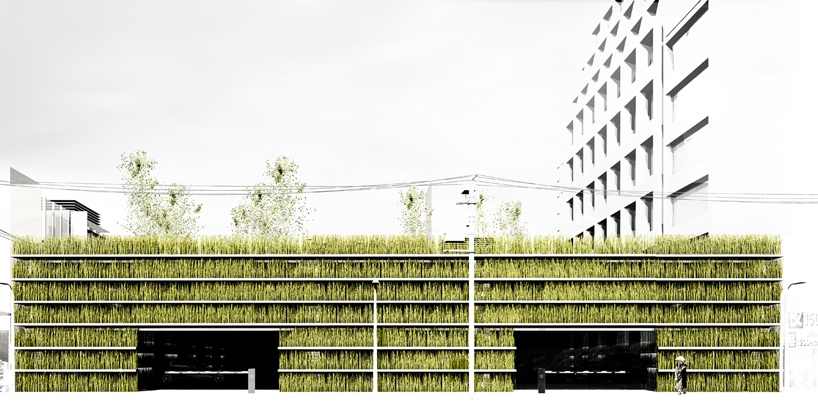 ‘green cladding’
‘green cladding’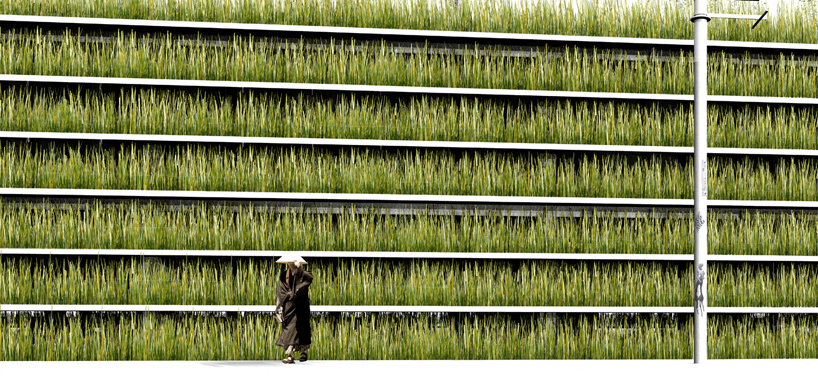 the structure’s cladding is replaced by wide balustrades, providing grounds in which grass is grown, creating the exterior of the car park
the structure’s cladding is replaced by wide balustrades, providing grounds in which grass is grown, creating the exterior of the car park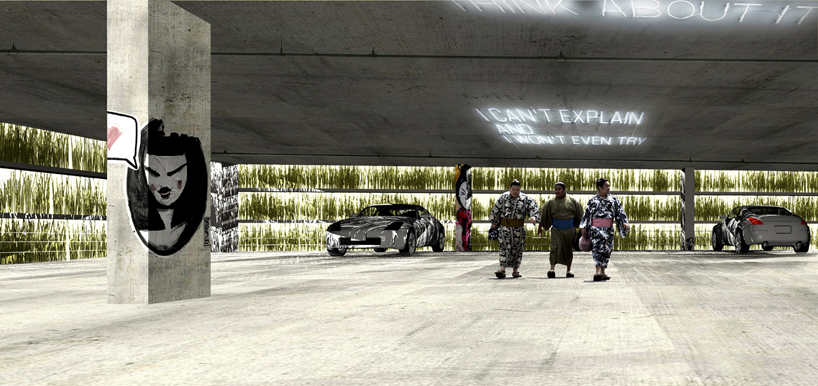 a view inside the shinjuku gardens car park with neon-light installations
a view inside the shinjuku gardens car park with neon-light installations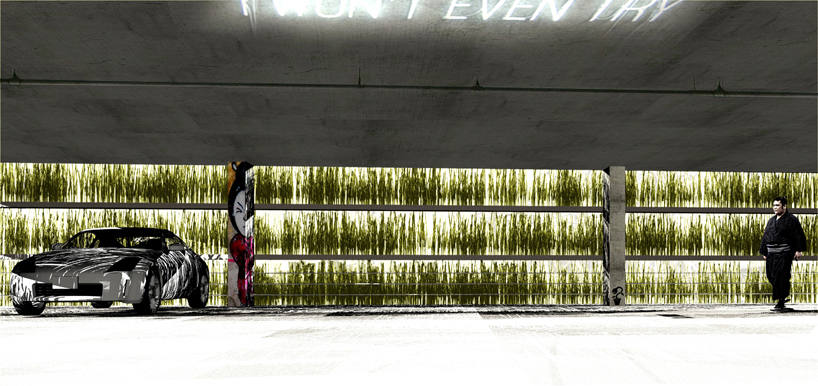 interior view of the ‘grass walls’
interior view of the ‘grass walls’ rendered over view of the car park and surrounding space
rendered over view of the car park and surrounding space  cross section
cross section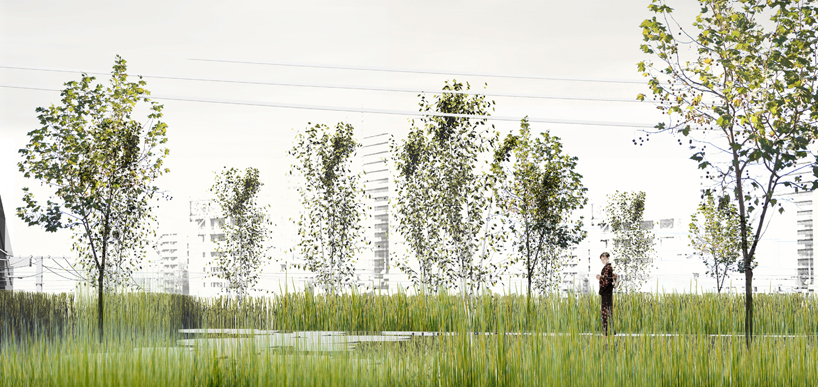 the parkade’s roof top green space – the actual ‘shinjuku garden’
the parkade’s roof top green space – the actual ‘shinjuku garden’ plan of original layout occupied land: 100 percent parking spaces: 80
plan of original layout occupied land: 100 percent parking spaces: 80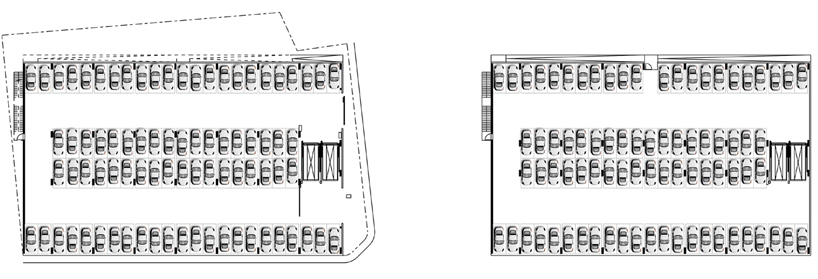 +0.00 occupied land: 78 percent / green public space +22 percent parking spaces: 82
+0.00 occupied land: 78 percent / green public space +22 percent parking spaces: 82 +3.00 occupied land: — parking spaces: 81
+3.00 occupied land: — parking spaces: 81